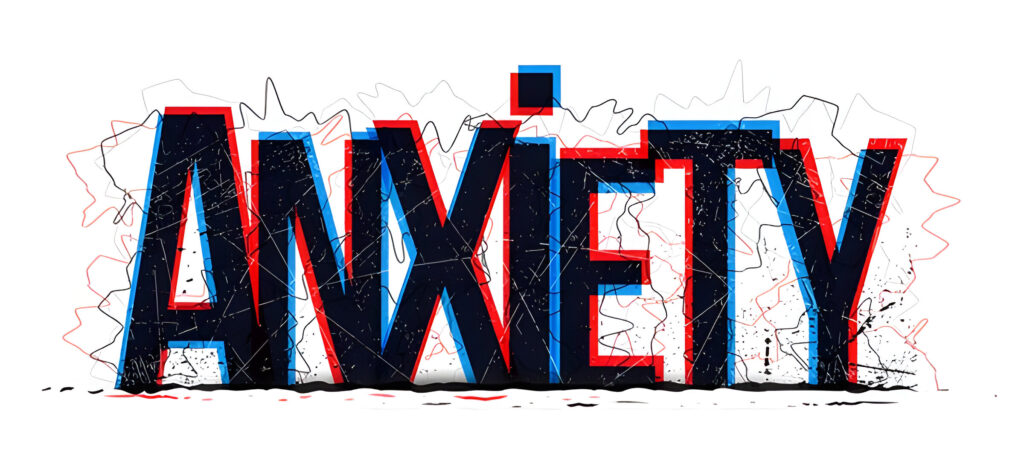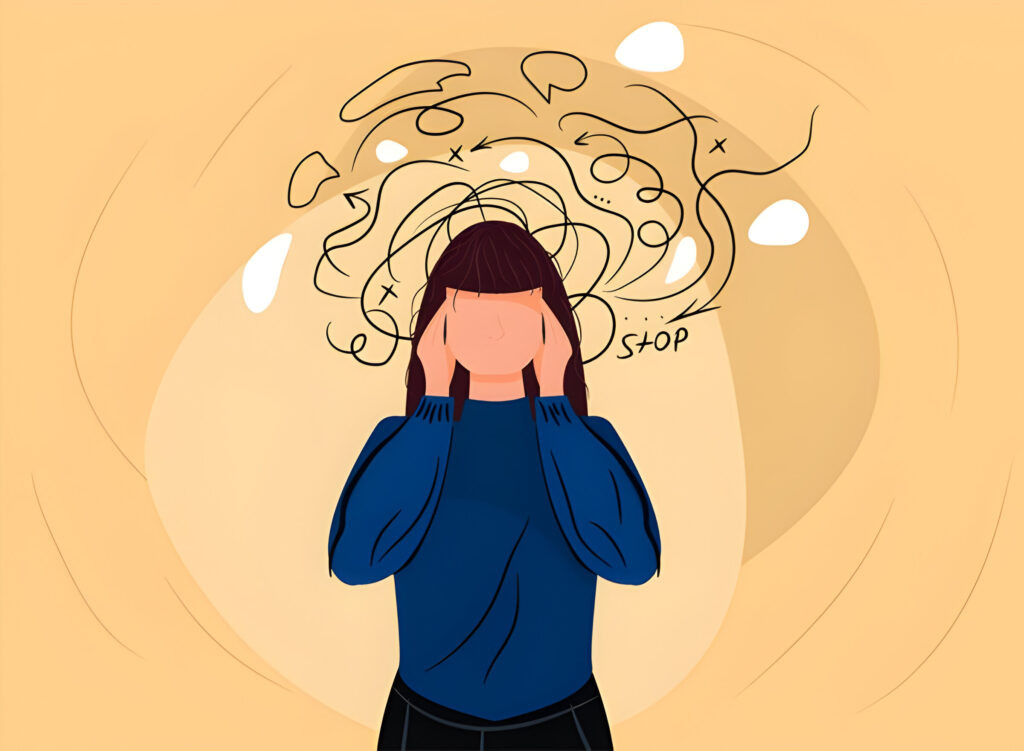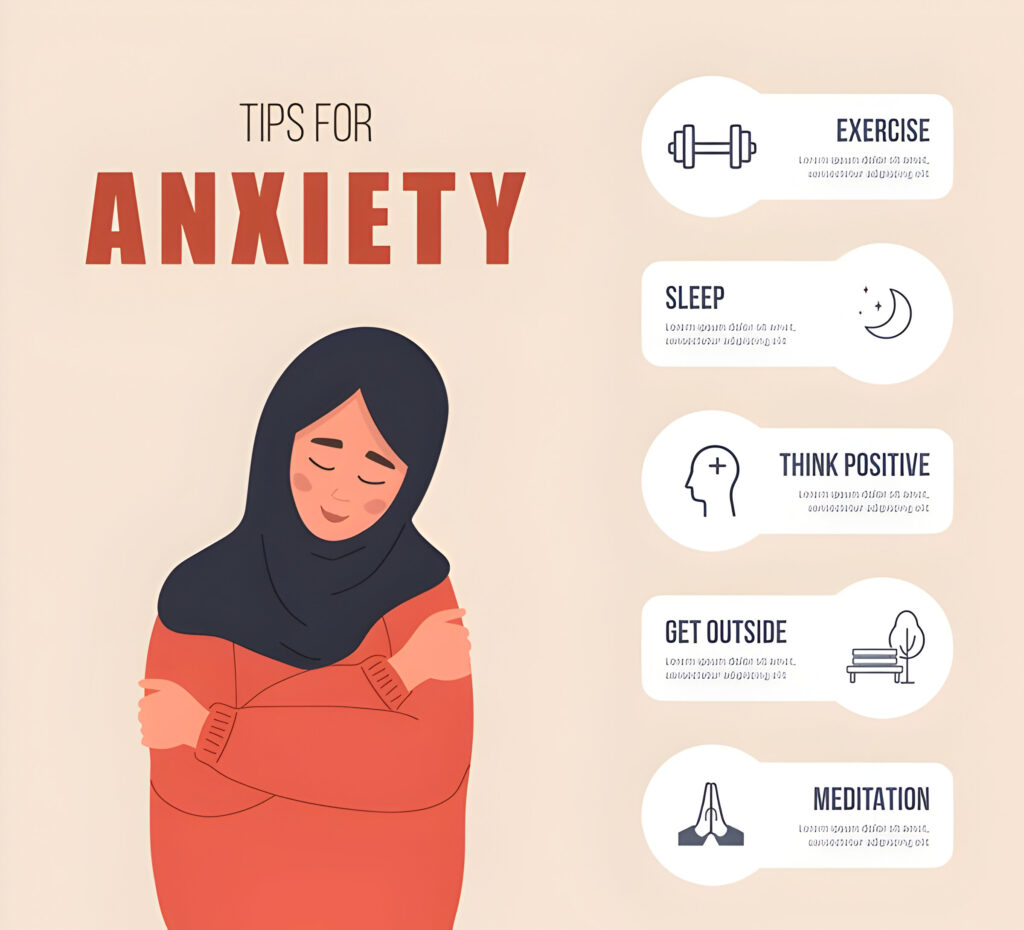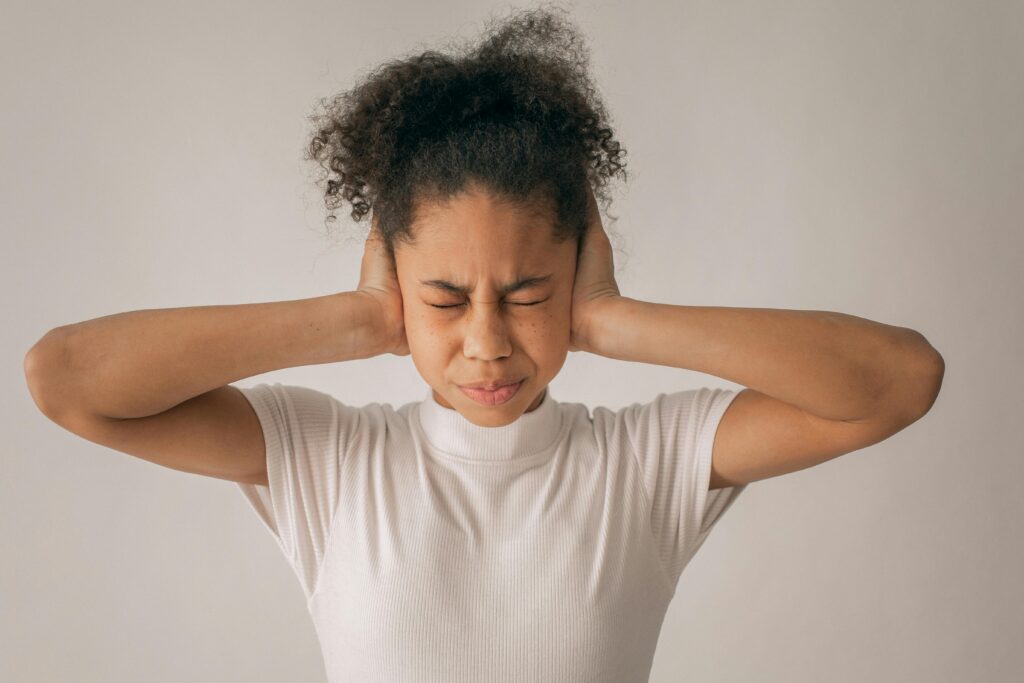Anxiety is the most common emotional response to stress, uncertainty, or potential threats. While it is a natural reaction that keeps us alert and prepared, persistent anxiety can become overwhelming and disrupt daily life, affecting relationships and overall well-being. A 2017 survey in India revealed that 44.9 million people suffer from anxiety, with a substantial number being young adults. In this blog, we will explore diverse types of anxiety, their symptoms, and practical steps to manage anxiety effectively.

So, What exactly is Anxiety?

Anxiety is an emotional response to the body’s fight-or-flight instincts, triggered due to stressful situations. While it can be motivating – helping you meet deadlines or perform well in exams – excessive anxiety can make daily tasks seem overwhelming.
But before we jump to the solution, we need to know what it feels like and what categories it is divided into.
Types of Anxiety in Young Adults and Their Symptoms :
Anxiety can manifest in various forms, and when it becomes overwhelming, it may lead to a chronic anxiety disorder. Here, are some common anxiety disorders we as youths face:
-
- Panic Disorder: Characterized by sudden and repeated episodes of intense fear, known as panic attacks, which can include physical symptoms like chest pain, heart palpitations, or shortness of breath.
-
- Social Anxiety Disorder: Marked by an intense fear of social situations or being judged by others, which can include symptoms like shivering, stuttering or shortness of breath.
-
- Generalized Anxiety Disorder (GAD): Involves chronic and excessive worry about various aspects of life, such as work, health, or social interactions.
-
- Obsessive-Compulsive Disorder (OCD): Defined by unwanted, obsessive thoughts and repetitive behaviors performed to reduce stress. It is caused due to a mix of genetic predisposition, brain abnormalities, and environmental factors like stress or trauma.
-
- Post-Traumatic Stress Disorder (PTSD): Develops after exposure to a traumatic event and includes symptoms like flashbacks, nightmares, and severe anxiety.
Causes of Anxiety :
Anxiety is caused due to several complex factors or situations. This may include:
-
- Personality Traits: Individuals who are naturally shy, prone to negative thoughts and more susceptible to GAD.
-
- Genetics: A family history of chronic anxiety disorder or any other mental disorder increases the risk of anxiety.
-
- Brain Chemistry: Imbalance in brain chemicals such as dopamine, serotonin and norepinephrine which might lead to anxiety. These neurotransmitters regulate mood and stress or fear response.
-
- Environmental Factors: Major life changes or any traumatic events, such as the death of a loved one, job loss, or financial problems, can trigger anxiety.
-
- Absence of Social Support: Absence of a social circle or support system can lead to feelings of being left out, lonely and even anxious.
Solutions :
While anxiety in young adults might seem like a huge problem, it can be managed by a few simple strategies:

- Music Therapy: One of the best ways to deal with anxiety involves working on music as a tool to address emotions and social needs. It provides a creative approach to express self-expression. Creating soothing playlists to help regulate mood and manage stress—for example: mood-boosting, focus or sleep playlist.
- Singing or Playing Musical Instruments: Engaging in music acts as an active form of meditation. It stimulates the vagus nerve, helping to calm the body and reduce anxiety and provides a sense of accomplishment. Things like singing in the shower, humming during a walk, singing along to your favorite song, or playing any instrument of your choice help reduce anxiety.
- Mindfulness: Practice being present and observing your thoughts without judgment. This helps you look at the problem from a bird’s eye view, helping you to focus on the solution rather than the problem. It reduces stress, improves self-awareness, and increases emotional regulation.
- Adequate Sleep: Quality sleep is essential for the mind to function properly and is essential for emotional and mental well-being. Poor sleep exacerbates anxiety symptoms.
- Physical Activities: Exercise releases endorphins which improves mood and relaxation. It also enhances physical health, boosts self-esteem and provides a physical outlet for stress. Activities like taking a walk, working out, dancing, and playing can significantly reduce stress.
- Journaling: Writing down thoughts and feelings can help young adults process their emotions and identify anxiety triggers. It provides emotional release, clarifies thoughts, and tracks progress over time.
Conclusion :

Managing anxiety in young adults demands some remarkable lifestyle changes, positive interaction therapeutic interventions, and sometimes medication. It is important to recognize what works for one person may not work for others, so a personalized approach is the key. You can try these solutions and use the one that suits your responses. If anxiety interferes with your daily life on a wide scale, seeking an experienced professional is advised.
Remember nothing lasts forever, if a perfect road has a dead end so do your problems, it might seem huge now, but you can get through it and grow a little with every challenge.Stay strong and thrive through every chapter.

